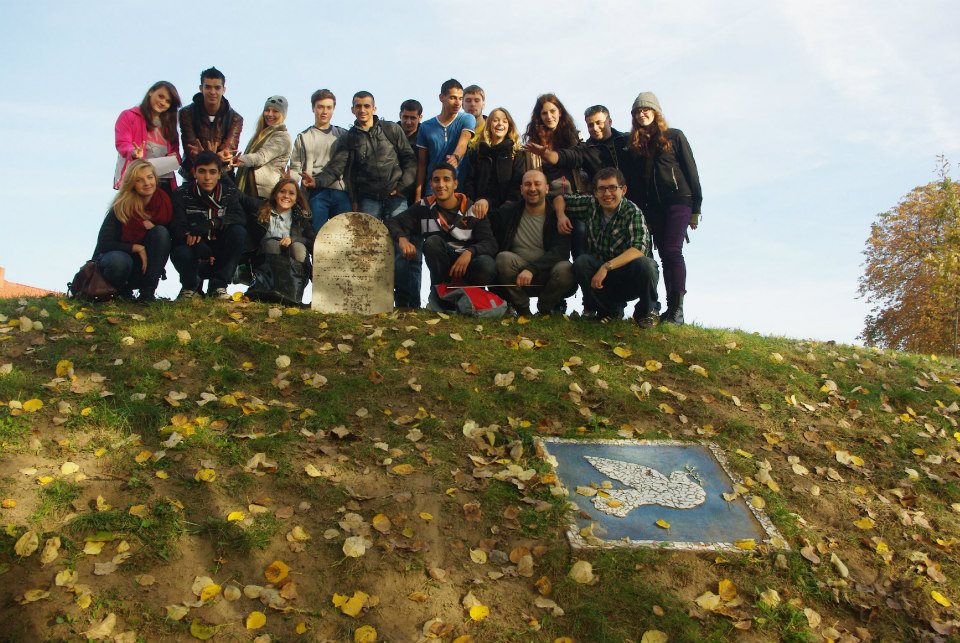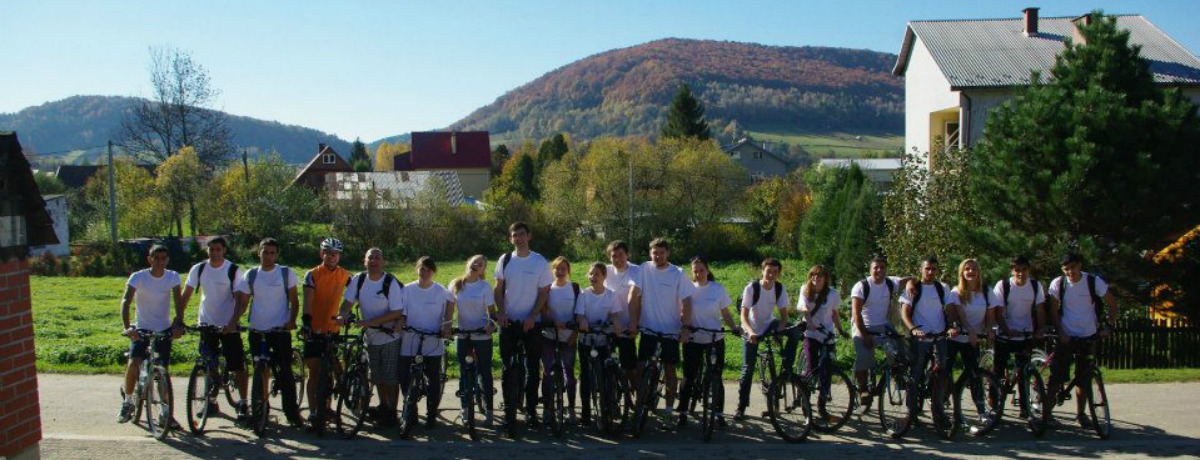“From Memory to Life by Bike” was a project allowing young people from Murowana Goślina and a small town of Peqiin in the north of Israel, to discover traces of their common past on bikes. Through various activities in Wielkopolska and the Bieszczady Mountains, young people touched upon the past and present, connected history with contemporary life, and created a new Polish-Israeli narrative about what was, is and will be.
We started our adventure on bikes in Murowana Goślina, where before World War II Polish, Jewish and German communities lived side by side. In Murowana Goślina we took part in ceremony of transferring a saved mazevot to the Jewish cemetery. The matzevot put together with a stone and a contemporary sculpture made by a Dutch artist created a lapidarium memorial commemorating those who are no longer among us. We have symbolically combined memory with life. We left a trace of ourselves in the form of a site of memory with a matzeva in the background. When we went to the Bieszczady Mountains, we followed the Chassidic Route around the towns of south-eastern Poland, where priceless traces of the centuries-old presence of Polish Jews have survived. We visited Ustrzyki Dolne, Lesko, Sanok, Łańcut, Leżajsk and Włodawa. The trail goes through attractive landscapes, such as Roztocze and Bieszczady, and takes to towns with impressive synagogues and Jewish cemeteries, where tombstones from the eighteenth, seventeenth and even sixteenth centuries can be found. Many of these cemeteries are still visited by Chassidim from all over the world. Throughout the project, we engaged in intercultural dialogue both within a group of participants and during meetings, workshops, sightseeing tours and study visits to different places. We also went to Krościenko in Bieszczady, where a large Greek community of Greeks once lived, which immigrated to Poland after 1949. Within the project we prepared a ceremony dedicated to all Jews and Poles who died during the WWII. We organized in in the German death camp in Bełżec, where over half a million people died. Bełżec illustrates, as if though a lens, all the aspects of the Polish/Jewish relations: from helping Jews, to betrayal of neighbours, post-war graves robbing, and commemorating those who perished. The visit to Bełżec was a time of reflection and silence.
The project „From Memory to Life by Bike” was co-financed by the Chancellery of the Prime Minister







